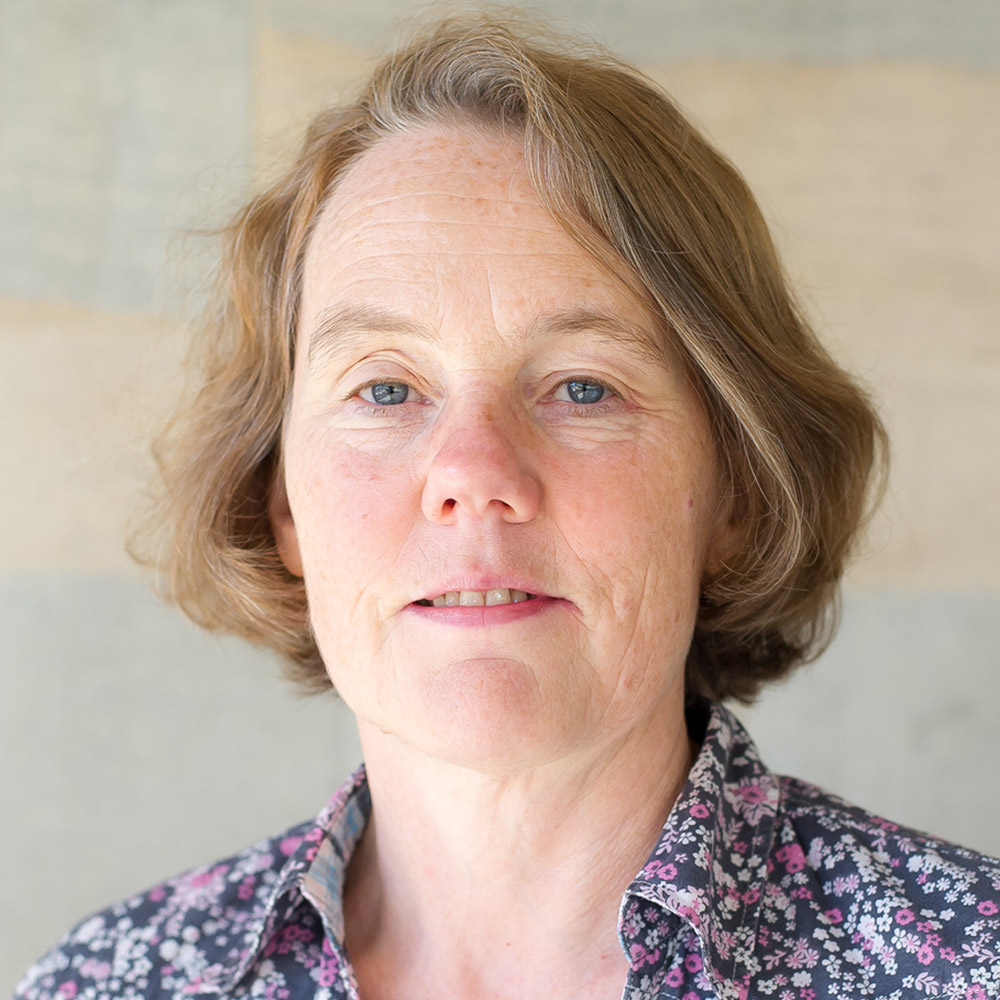Professor Alison Rowlands

-
Email
alisonc@essex.ac.uk -
Location
5B.119, Colchester Campus
-
Academic support hours
My Academic Support Hours for Spring Term 2026 are:Week 16: Tuesday 2-3 & Thursday 11-12; Weeks 17-20: Tuesday 3-4 & Thursday 11-12; Week 21: Monday 4-5 and Tuesday 3-4; Weeks 22-25: Tuesday 3-4 & Thursday 11-12.
Profile
Biography
I am an historian of early modern Europe, with expertise in the history of witch-trials and witchcraft in Germany and England. Much of my research has been focused on the rich archive of the German city of Rothenburg ob der Tauber, on which I completed my University of Cambridge PhD, Women, Gender and Power in Rothenburg ob der Tauber and its Rural Environs, 1500-c.1618, under the supervision of Bob Scribner in 1994. I have taught the comparative history of early modern witch-trials and become increasingly interested in the history of Essex and East Anglian witch-trials since starting to work at the University of Essex in 1992. My current research project, Witchcraft politics (Hexenpolitik) across the sea. A new entangled history of early modern England and the Holy Roman Empire, brings these two areas of interest together. Funded by the AHRC and DFG, the HEXPOL project, on which I collaborate with Professer Rita Voltmer from the University of Trier, Germany, runs for three years from February 2026 and will undertake a sustained comparative analysis of the 'witchcraft politics' within and across both polities, and explore how ideas about witchcraft, magic, and the devil were transmitted between them. I have always been intrigued by the lives and actions of non-elite people in the past, especially in response to experiences of prosecution and trauma, and by the challenge of reconstructing their life-stories and understanding their agency from surviving historical records, few of which were written by them. I bring these interests to bear in my other current research into the identity and family relationships of Michael Wirth, a citizen-wheelwright from Rothenburg, who was accused of murder by witchcraft in 1663, and whose trial changed the course of his life and that of his wife, Barbara, and their children. I am also very interested in how histories of witchcraft as a form of gendered persecution can be shared and co-produced in contexts beyond academia - for example, with schools, writers, artists, museums, and local communities. I did an impact case-study on this theme for REF 2014 and have since been involved as the historical advisor on several commemorative projects related to the history of the early modern Essex witch-trials. The most recent of these projects is the Tendring Witch Heritage Trail across four locations in the Tendring District, Essex, which launched on 16 April 2025.
Qualifications
-
B.A. History (Honours), St Hilda's College, Oxford, 1987
-
Ph.D. in History, Clare College, Cambridge, 1995
-
Fellow of the Higher Education Academy, 2012
-
Fellow of the Royal Historical Society Royal Historical Society,
Appointments
University of Essex
-
Professor in early modern European history, History, University of Essex (1/9/2014 - present)
-
Head of Department, History, University of Essex (1/8/2011 - 31/7/2014)
-
Senior Lecturer in early modern European history, History, University of Essex (1/9/2003 - 31/8/2014)
-
Lecturer in early modern European history, History, University of Essex (1/9/1992 - 31/8/2003)
Research and professional activities
Research interests
The social and cultural history of early modern Germany.
I explore early modern German history through the lens provided by the Lutheran imperial city of Rothenburg ob der Tauber, with a focus on gender, witchcraft, crime, religion, governance, and the impact of the Thirty Years War (1618-48).
Gender in early modern Europe.
I focus on the construction and expression of gender in early modern Germany and England. I am especially interested in how individuals articulated their gendered selves through words and deeds, and in the impact of major events (such as war or personal trauma) on gendered subjectivities.
Witchcraft, magic and witch-trials, especially in early modern Germany and England
I research early modern witch-trials, with particular emphasis on Rothenburg ob der Tauber in Germany and Essex and East Anglia in England. I am interested in the ways in which witch-trials and magical beliefs were gendered, and how patriarchal power systems shaped witch-prosecutions, witch-trial testimonies, and wider cultural debates about witchcraft. I also look at how and why witchcraft beliefs changed over time, and at how and why the intensity of witch-trials varied regionally.
Witch-trials in fiction, commemorative practice, and public history.
I focus on how witch-trials are remembered, commemorated, and re-worked in various contexts. such as literature, drama, art, museums, and commemorative practices. Who gets involved in these processes and why, and what role can academic historians play in them? I'm especially interested in these themes in relation to witchcraft drama and fiction, and in relation to witch-trials in Germany and England.
Current research
The Sorcerer's Wife: The Life and Times of Barbara Wirth
This short monograph is about Barbara Wirth, a seventeenth-century German woman who lived through the Thirty Years War and whose life was irrevocably changed by the trial for murder by sorcery of her husband, Michael Wirth (a citizen-wheelwright from the German imperial city of Rothenburg ob der Tauber) in 1663. The book details and analyses the lives of Barbara, Michael and their family before, during and after 1663, exploring why Michael was accused of sorcery, how and why Barbara became implicated in the trial, and what impact the trial and its aftermath had on Barbara, Michael and their children. The monograph offers detailed insight into the devastating impact an accusation of sorcery had on three generations of an early modern family, and reflects on the challenges of writing history from a woman's perspective.
Gender, identity, and magical practice in 17th-century Germany
I am currently writing three interlinked articles on gender, identity and magical practice in 17th-century Germany, based on a hugely detailed set of records pertaining to the life-history and trial for murder by sorcery of Michael Wirth, a citizen-wheelwright from the German imperial city of Rothenburg ob Tauber. They are: 1. ‘Michael Wirth’s Kunstbüchlein: Books of arts and weapons magic in a sorcery trial from seventeenth-century Germany’ (English Historical Review, forthcoming); 2. ‘Social self-hood and intersectional identity in seventeenth-century Germany: A case-study of artisan/sorcerer Michael Wirth', which explores concepts of intersectional identity and masculinity in the early modern period; and: 3. ‘Emotions and the early modern sick-bed', which uses Wirth's sorcery trial records to explore men's experiences of illness and interactions around the sickbed, and the emotions and antagonisms these interactions could engender.
Witchcraft politics (Hexenpolitik) across the sea. A new entangled history of early modern England and the Holy Roman Empire
This AHRC/DFG-funded collaborative project will challenge the unhelpful historiographical idea that early modern English witch-trials were intrinsically different from those in the Holy Roman Empire. It will establish the modes and content of communications about witchcraft, magic, and the devil across and between the two polities, regarding the seas that separated Britain from other parts of Europe as enabling, rather than hindering, the transfer of ideas and people (Work Programme 1: Demonology and Anti-Demonology: Communication and Maritime Transfer, led by Professor Rita Voltmer at the University of Trier). The project will also undertake a multi-level comparison of witch-trials in selected regions of England and the Holy Roman Empire using the analytical model of ‘witchcraft politics’ (Hexenpolitik), which we define as a constellation of policies, ideas, and social actors that combined to initiate and escalate witch-trials in some times and places, but which could work to resist or discourage witch-trials in others (Work Programme 2: Hexenpolitik and Heterogeneity, led by Professor Rowlands).
Conferences and presentations
A Devil called Wischauf. Early modern ways of representing the devil in fraud, entertainment and theatre.
Invited presentation, Magical cultures of laughter: Jest, Mockery, and Satire in Witchcraft Discourse, Magical cultures of laughter: Jest, Mockery, and Satire in Witchcraft Discourse, Weingarten, Germany, 23/2/2024
Narrative resolution? Making sense of narratives, experiences, and identities in witch-trial records from early modern Rothenburg ob der Tauber, Germany.
Keynote presentation, Analyzing narratives and experience in history conference, Analyzing narratives and experience in history conference, Tampere, Finland, 31/10/2022
Exploring ‘work’ and identity in the case of wheelwright/sorcerer Michael Würth (1663)
German History Society Annual Conference (2021), German History Society Annual Conference, London, United Kingdom, 3/9/2021
Hexenprozessgeschichte - Biografie - Mikrogeschichte: Der Fall von Michael Wuerth, 1663.
Arbeitskreis interdisziplinaere Hexenforschung (AKIH) conference, Akademie der Diözese Rottenburg-Stuttgart, Stuttgart-Hohenheim, Germany, 20/2/2020
The Life and Times of Michael Wuerth. Writing an historical biography of a man accused of witchcraft in Germany in 1663.
Invited presentation, University of Sussex, Department of History Seminar Series, University of Sussex, 24/10/2019
Witchcraft and Magic: Historical and Anthropological Perspectives.
Invited presentation, Interdisciplinary workshop, University of Durham., University of Durham., Durham, United Kingdom, 1/5/2019
'Implementing ‘reformation(s)’: Religion and society in Lutheran Rothenburg ob der Tauber, 1520-1700', Reformation Studies Colloquium, University of Essex (2018).
Colchester, United Kingdom, 2018
The Kunstbüchlein (Little Book of Arts) of Michael Wuerth: Men and Magic in 17th-Century Lutheran Germany
German History Society annual conference, University of St Andrews, 31/8/2017
'"...wie die Kirchenordnung vollzogen werden soll..... ". Reformation und Gesellschaft in Rothenburg ob der Tauber, 1558-1700 ("...how the Church Ordinance should be implemented..". Reformation and society in Rothenburg ob der Tauber, 1558-1700), Verein Alt-Rothenburg Lecture Series, Rothenburg ob der Tauber (2016).
2016
'Contested narratives, contesting identities: Witchcraft narratives in legal and social context in early modern Germany', Narrating Witchcraft: Agency, Discourse and Power Conference, University of Erfurt (2016).
Erfurt, Germany, 2016
'How Lutheran was witch-prosecution in early modern Rothenburg ob der Tauber? Beliefs, trials and clerical influence in a German imperial city', Sixteenth Century Studies Conference, Bruges (2016).
Bruges, Belgium, 2016
'Transformations real and imagined: Moments of becoming in witchcraft beliefs and witch-trials in early modern Germany', plenary lecture at the Moments of Becoming: Transitions and Transformations in Early Modern Europe Conference, University of Limerick (2015).
Limerick, Ireland, 2015
'When will the burning start here? Demonological texts, judicial procedure, and the spread of ideas about witchcraft in early modern Rothenburg ob der Tauber', Demons and Witches. The Impact of Demonology on European Witch-hunts Conference, University of Tromso (2014).
Tromso, Norway, 2014
'Was witch persecution in early modern Europe an atrocity?', Atrocity in Question Conference, University of Essex (2012).
Colchester, United Kingdom, 2012
'Das Rothenburger Frauenhaus im 16. Jahrhundert' (The Rothenburg brothel in the sixteenth century), Verein Alt-Rothenburg Lecture Series, Rothenburg ob der Tauber (2011).
Rothenburg, Germany, 2011
'Hexenprozesse gegen Kinder in Rothenburg ob der Tauber' (Witch-trials against children in Rothenburg ob der Tauber), Arbeitskreis interdisziplinaere Hexenforschung (AKIH) Tagung Hexenkinder, Kinderbanden, Strassenkinder, Weingarten(2010).
Weingarten, Germany, 2010
'Bones of Contention? The St Osyth witch skeletons of 1921', St Osyth Historical Society Lecture Series, St Osyth, Essex (2010).
St Osyth, United Kingdom, 2010
'Witchcraft and Witchcraft Beliefs in England during the Lifetime of Thomas Plume (1630-1704)', Annual Plume Lecture, Maldon, Essex (2010).
Maldon, United Kingdom, 2010
I give talks about the Essex and East Anglian witch-hunts of 1645-7 regularly to local audiences; for example, in the Slackspace lecture series Alternative Voices: Historical Perspectives on Witchcraft and Paganism in the East, Colchester; at the Open House Event, University of Essex; and in the Centre for East Anglian Studies lecture series at the University of East Anglia (2010); in the Historical Association Lecture Series, Chelmsford (2011); to the University of the Third Age in Southend, and at the Wivenhoe Society AGM (2012); to the Thorpe-le-Soken Allsorts group (2013); at the Sentinel Gallery, Wivenhoe (2016); and at firstsite, Colchester, and to the VCH Essex AGM, Harwich (2019).
Colchester, United Kingdom, 2010
Teaching and supervision
Current teaching responsibilities
-
The World in Question: The Social, Cultural, Political & Environmental Legacies of the Enlightenment (CS201)
-
Witches, Witchcraft and Witch-Hunts in Early Modern Europe and New England (HR628)
-
Placement Year (HR701)
-
Research Project (HR831)
-
Gender and Identity in Early Modern Europe, c.1450-c.1750 (HR922)
-
Rethinking History: Approaches, Theories and Concepts (HR924)
-
Dissertation (HR931)
-
Making History, Sharing History: Sources, Methods, and Audiences for Historical Research (HR935)
-
The Creation and Collapse of the Gaelic World in Britain and Ireland (HR251)
Current supervision
Previous supervision

Degree subject: History
Degree type: Doctor of Philosophy
Awarded date: 17/10/2024

Degree subject: History
Degree type: Master of Arts (by Dissertation)
Awarded date: 1/7/2016

Degree subject: History
Degree type: Master of Arts (by Dissertation)
Awarded date: 1/12/2015
Publications
Journal articles (36)
Rowlands, A., (2024). Michael Wirth’s Kunstbüchlein: Books of Arts and Weapons Magic in a Sorcery Trial from Seventeenth-Century Germany. The English Historical Review. 139 (600), 1088-1116
Rowlands, A., (2022). The Devil’s Art: Divination and Discipline in Early Modern Germany, by Jason Philip Coy. The English Historical Review. 137 (586), 931-932
Rowlands, A., (2020). The Witch-cleric Stereotype in a Seventeenth-Century Lutheran Context. German History. 38 (1), 1-23
Rowlands, A., (2020). Identity, Memory, Self-fashioning: Narratives of Non-confession in the Witch-trial of Margaretha Horn, 1652. Magic, Ritual, and Witchcraft. 14 (3), 336-370
Rowlands, A., (2020). Imagining the Witch. Emotions, Gender, and Selfhood in Early Modern Germany. German History. 38 (4), 667-669
Rowlands, A., (2018). Zeiten des Teufels: Teufelsvorstellungen und Geschichtszeit in frühreformatorischen Flugschriften (1520–1526). German History. 36 (3), 440-441
Rowlands, A., (2017). The Devil in Society in Premodern Europe, edited by Richard Raiswell and Peter Dendle. Church History and Religious Culture. 97 (1), 121-123
Rowlands, A., (2016). Gender, Ungodly Parents and a Witch Family in Seventeenth-Century Germany. Past and Present. 232 (1), 45-86
Rowlands, A., (2016). Father confessors and clerical intervention in witch-trials in seventeenth-century Lutheran Germany: The case of Rothenburg, 1692. English Historical Review. 131 (552), 1010-1042
(2012). The Last Witch of Langenburg: Murder in a German Village (review). Magic, Ritual, and Witchcraft. 7 (1), 121-124
Rowlands, A., (2012). "Ein verschlagener Geist": Vorstellungen des Teufels in den Hexenprozessen der Reichsstadt Rothenburg ob der Tauber ["A Cunning Spirit": Ways of Imagining the Devil in the Witch-Trials of the Imperial City of Rothenburg ob der Tauber]. Archiv für Reformationsgeschichte. 103, 210-236
(2011). Tryntje Helfferich, ed. and translator, The Thirty Years War: A Documentary History, Hackett Publishing Company: Indianapolis, IN, 2009; 332 pp., 1 map, 9 illus.; 9780872209398, £13.95 (pbk). European History Quarterly. 41 (4), 703-704
Rowlands, A., (2011). What did Thomas Plume think about witchcraft? Reconstructing the intellectual outlook of a little-known 17th-century English sceptic. Essex archaeology and history : the transactions of the Essex Archaeological Society. 2 (4th series), 196-206
Rowlands, A., (2009). Die “Flohfrau von Bettenfeld”: Strategien des Widerstandes in einem fränkischen Hexenprozeβ des 17. Jahrhunderts (The “Flea-Woman of Bettenfeld”: Strategies of Resistance in a Seventeenth-Century Franconian Witch-Trial). Jahrbuch für fränkische Landesforschung. 69, 173-185
Rowlands, A., (2009). Männer in Hexenprozessen. Ein historiographischer Überblick aus anglo-amerikanischer Perspektive’ (Men in Witch Trials. An Historiographical Overview from an Anglo-American Perspective). @KIH-eSkript. Interdisziplinäre Hexenforschung online 1, 2009: Männer, Magie und Hexenverfolgung (1), 23-39
Rowlands, A., (2008). 'Superstition', Magic, and Clerical Polemic in Seventeenth-Century Germany. Past and Present. 199 (Supp 3), 157-177
Rowlands, A., (2006). Contextualizing Magic and Witchcraft in the Novels of Margery Allingham: The Examples of Sweet Danger and Look to the Lady. Clues: A Journal of Detection. 23 (1), 49-60
Rowlands, A., (2005). Die Verfolgung von Zauberei und Hexerei in den fränkischen Markgraftümern im 16. Jahrhundert. By Susanne Kleinöder‐Strobel. Spätmittelalter und Reformation, new series, volume 20. Edited by, Berndt Hamm et al. Tübingen: Mohr Siebeck, 2002. Pp. xv+332. €69.00.. The Journal of Modern History. 77 (4), 1134-1136
ROWLANDS, A., (2005). N. Schindler, Rebellion, community and custom in early modern Germany, translated by Pamela E. Selwyn. (Cambridge: Cambridge University Press, 2002.) Pages xiv+311. £55.00. (First published in German as Widerspenstige Leute. Studien zur Volkskultur in der frühen Neuzeit (Fischer Tashenbuch Verlag, Frankfurt am Main, 1992).). Continuity and Change. 20 (1), 148-151
Rowlands, A., (2004). A long disenchantment. Tls the Times Literary Supplement (5331), 3-4
Rowlands, A., (2002). The 'Little Witch Girl' of Rothenburg: a child-witch in Germany during the Thirty Years' War. History Review. 42, 27-32
Rowlands, A., (2001). Review of H. C. Erik Midelfort, 'A History of Madness in Sixteenth-Century Germany'. German History. 19 (2)
Rowlands, A., (2001). Review of Ulinka Rublack, 'The Crimes of Women in Early Modern Germany 'and Margaret L. Arnot and Cornelie Usborne (ed), 'Gender and Crime in Modern Europe'. Gender & History. 13 (1)
Rowlands, A., (2001). Witchcraft and old women in early modern Germany. Past and Present. 173 (1), 50-89
Rowlands, A., (1999). Review of Ingrid Ahrendt-Schulte, Zauberinnen in der Stadt Horn (1554-1603). Magische Kultur und Hexenverfolgung in der frühen Neuzeit (Frankfurt am Main & New York, Campus, 1997). German History. 17 (2)
Rowlands, A., Chartres, JA., Burchell, RA., Raibmon, P., Kale, M. and Burton, A., (1998). Short notices. Social History. 23 (2), 241-247
Rowlands, A., (1998). Reordering marriage and society in Reformation Germany. SOCIAL HISTORY. 23 (1), 103-104
Rowlands, A., (1998). Telling Witchcraft Stories: New Perspectives on Witchcraft and Witches in the Early Modern Period. Gender & History. 10 (2), 294-302
Rowlands, A., (1997). Fearless wives and frightened shrews: The construction of the witch in early modern Germany - Brauner,S. SOCIAL HISTORY. 22 (2), 223-225
Rowlands, A., (1997). Between poverty and pyre: Moments in the history of widowhood - Bremmer,J, vandenBosch,L. HISTORY. 82 (265), 106-107
Rowlands, A., (1997). The making of man-midwifery. Childbirth in England, 1660-1770 - Wilson,A. JOURNAL OF GENDER STUDIES. 6 (3), 326-327
Rowlands, A., (1997). Germany, a new social and economic history, vol 1, 1450-1630. ENGLISH HISTORICAL REVIEW. 112 (448), 947-948
Rowlands, A., (1997). 'In Great Secrecy': the Crime of Infanticide in Rothenburg ob der Tauber, 1501-1618. German History. 15 (2), 179-199
Rowlands, A., (1995). Change achieved, change thwarted: religion and society in Reformation Europe. The Historical Journal. 38 (3), 671-678
Rowlands, A., (1994). To wear a virgin's wreath: gender and problems of conformity in early modern Germany. European Review of History. 1 (2)
Rowlands, A., (1994). To wear a virgin's wreath: Gender and problems of conformity in early modern Germany. European Review of History: Revue europeenne d'histoire. 1 (2), 227-232
Books (3)
Rowlands, A., (2013). Eine Reichsstadt ohne Hexenwahn Hexenprozesse, Gerichtspraxis und Herrschaft im 16. und 17. Jahrhundert in Rothenburg ob der Tauber. Jahrbuch des Verein Alt-Rothenburg 2013. 978-3-944109-06-0
Rowlands, A., (2009). Witchcraft and Masculinities in Early Modern Europe. Palgrave Macmillan. 023055329X. 9780230553293
Rowlands, A., (2003). Witchcraft Narratives in Germany Rothenburg, 1561-1652. Manchester University Press. 184779520X. 9781847795205
Book chapters (34)
Rowlands, A., (2020). Demonological Texts, Judicial Procedure, and the Spread of Ideas about Witchcraft in Early Modern Rothenburg ob der Tauber. In: Demonology and Witch-hunting in Early Modern Europe. Editors: Goodare, J., Voltmer, R. and Willumsen, LH., . Routledge. 208- 232. 0367440520. 9780367440527
Rowlands, A., (2019). A lutheran response to witchcraft and magic. In: Witchcraft Reader Third Edition. 174- 179
Rowlands, A., (2018). 'Witch' finding in Manningtree, 1645. In: Stour.. Editors: Philo, R., . Estuarine Press. 20- 22. 9-780955-922657
Rowlands, A., (2017). Eine lutherische Reichsstadt ohne Hexenwahn – Rothenburg ob der Tauber von 1550 bis 1750. In: Mit dem Schwert oder festem Glauben” – Luther und die Hexen. Editors: Hirte, M., . Konrad Theiss. 176- 190. 978-3806234510
Rowlands, A., (2017). Witch-Finders, Patterns of Persecution and Communication Networks During the East Anglian Witch-Hunts of 1645-1647. In: Europäische Hexenforschung und Landesgeschichte - Methoden, Regionen, Vergleiche. Editors: Voltmer, R., . Paulinus Verlag
Rowlands, A., (2015). "…ein armes verführtes und betrogenes Kind….". Hexenprozesse gegen Kinder in Rothenburg ob der Tauber, 1587-1709. Editors: Behringer, W. and Opitz-Belakhal, C., . Verlag für Regionalgeschichte. 257- 266. 978-3895349751
Rowlands, A., (2014). Eine Reichsstadt ohne “Hexenwahn”: Rothenburg ob der Tauber, 1550-1750. In: Hexenwahn in Franken. Editors: Mergenthaler, M. and Klein-Pfeuffer, M., . J H Röll Verlag. 262- 275. 978-3897544529
Rowlands, A., (2013). Witchcraft and gender in early modern Europe. In: The Oxford Handbook of Witchcraft in Early Modern Europe and Colonial America. Editors: Levack, BP., . Oxford University Press,. 449- 467. 9780199578160
Rowlands, A., (2012). Witchcraft and popular religion in early modern Rothenburg Obder Tauber. In: New Perspectives on Witchcraft Magic and Demonology Witchcraft Healing and Popular Diseases. 153- 171
Rowlands, A., (2009). Not 'the Usual Suspects'? Male Witches, Witchcraft, and Masculinities in Early Modern Europe. 1- 30. 978-0-230-55329-3
Rowlands, A., (2006). Entries on 'Age of accused witches'; 'Goedelmann, Johann Georg'; 'Thumm, Theodor'; 'Warfare'; 'Imperial Free Cities'; 'Noerdlingen, Imperial Free City'; 'Wuerzburg, Prince-Bishopric of'.. In: Encyclopedia of Witchcraft: The Western Tradition (4 vols.). Editors: Golden, RM., . ABC-CLIO. 1-57607-243-6
Rowlands, A., (2006). Würzburg, Prince-Bishopric of. In: Encyclopedia of Witchcraft the Western Tradition Volumes 1 4. 1230- 1231
Voltmer, R. and Rowlands, A., (2006). Witch Hunts. In: Encyclopedia of Witchcraft the Western Tradition Volumes 1 4. 1209- 1214
Rowlands, A., (2006). Warfare. In: Encyclopedia of Witchcraft the Western Tradition Volumes 1 4. 1180- 1182
Rowlands, A., (2006). Thumm, Theodor (1586–1630). In: Encyclopedia of Witchcraft the Western Tradition Volumes 1 4. 1119- 1120
Voltmer, R. and Rowlands, A., (2006). St. Maximin, Prince-Abbey Of. In: Encyclopedia of Witchcraft the Western Tradition Volumes 1 4. 1082- 1083
Voltmer, R. and Rowlands, A., (2006). Saar Region. In: Encyclopedia of Witchcraft the Western Tradition Volumes 1 4. 985- 987
Voltmer, R. and Rowlands, A., (2006). Prätorius, Johannes (1630–1680). In: Encyclopedia of Witchcraft the Western Tradition Volumes 1 4. 929- 930
Rowlands, A., (2006). Nördlingen, Imperial Free City. In: Encyclopedia of Witchcraft the Western Tradition Volumes 1 4. 831- 832
Voltmer, R. and Rowlands, A., (2006). Nassau-Saarbrücken, County Of. In: Encyclopedia of Witchcraft the Western Tradition Volumes 1 4. 802- 803
Voltmer, R. and Rowlands, A., (2006). Luxembourg, Duchy Of. In: Encyclopedia of Witchcraft the Western Tradition Volumes 1 4. 677- 680
Voltmer, R. and Rowlands, A., (2006). Loos, Cornelius (1540 TO 1546–1596?). In: Encyclopedia of Witchcraft the Western Tradition Volumes 1 4. 666- 667
Rowlands, A., (2006). Imperial Free Cities. In: Encyclopedia of Witchcraft the Western Tradition Volumes 1 4. 540- 544
Rowlands, A., (2006). Goedelmann, Johann Georg (1559–1611). In: Encyclopedia of Witchcraft the Western Tradition Volumes 1 4. 448- 449
Voltmer, R. and Rowlands, A., (2006). Ardennes. In: Encyclopedia of Witchcraft the Western Tradition Volumes 1 4. 56- 58
Rowlands, A., (2006). Age of Accused Witches. In: Encyclopedia of Witchcraft the Western Tradition Volumes 1 4. 16- 20
Rowlands, A., (2005). Rothenburg gegen Wuerzburg. Durchsetzung von Herrschaftsanspruechen im Hexenprozess der Margaretha Hoerber, 1627. In: Hexenverfolgung und Herrschaftspraxis. Editors: Voltmer, R., . Spee Verlag. 113- 127. 3-87760-129-4
Rowlands, A., (2003). '...wie der Poebel gemeinlich auss einer Mucken einen Elefanten zumachen pflegt...' - Ratskonsulent Friedrich Prenninger und seine Gutachten in drei Hexenprozessen im fruehneuzeitlichen Rothenburg ob der Tauber. In: Staedte, Regionen, Vergleiche. Beitraege fuer Ludwig Schnurrer zum 75. Geburtstag.. Editors: Borchardt, K. and Tittmann, E., . Kommissionsverlag Ferdinand Schoeningh. 285- 304. 3-87717-065-X
Rowlands, A., (2002). Stereotypes and statistics: Old women and accusations of witchcraft in early modern Europe. In: Power and Poverty. Old Age in the Pre-Industrial Past. Editors: Ottaway, SR., Botelho, LA. and Kittredge, K., . Greenwood Press. 167- 186. 0-313-31128-5
Rowlands, A., (2002). Monstrous deception: midwifery, fraud and gender in early modern Rothenburg ob der Tauber. In: Gender in Early Modern German History. Editors: Rublack, U., . Cambridge University Press. 71- 101. 0-521-81398-0
Rowlands, A., (2002). Eine Stadt ohne 'Hexenwahn': Hexenprozesse, Gerichtspraxis und Herrschaft im fruehneuzeitlichen Rothenburg ob der Tauber. In: Hexenprozesse und Gerichtspraxis. Editors: Eiden, H. and Voltmer, R., . Spee Verlag. 331- 347. 3-87760-128-6
Rowlands, A., (1999). The conditions of life for the masses, 1500-1618. In: Early Modern Europe. An Oxford History.. Editors: Cameron, E., . Oxford University Press. 31- 62. 0-19-820528-7
Rowlands, A., (1997). An aspect of family history in early modern Germany: bad marriages in Rothenburg ob der Tauber, 1544-c.1618. In: Historia de la Mujer e Historia del Matrimonio. Editors: Cordon, MV. and Esteller, MC., . Murcia University Publications. 45- 49
Rowlands, A., (1996). Witchcraft and Popular Religion in early modern Rothenburg ob der Tauber. In: Popular Religion in Germany and Central Europe, 1400-1800. Editors: Scribner, B. and Johnson, T., . Macmillan. 101- 118. 0-333-61457-7
Conferences (1)
Rowlands, A., (2009). Witchcraft and Masculinities in Early Modern Europe Preface
Grants and funding
2025
Witchcraft politics (Hexenpolitik) across the sea. A new entangled history of early modern England and the Holy Roman Empire
Arts and Humanities Research Council
Contact
Academic support hours:
My Academic Support Hours for Spring Term 2026 are:Week 16: Tuesday 2-3 & Thursday 11-12; Weeks 17-20: Tuesday 3-4 & Thursday 11-12; Week 21: Monday 4-5 and Tuesday 3-4; Weeks 22-25: Tuesday 3-4 & Thursday 11-12.



